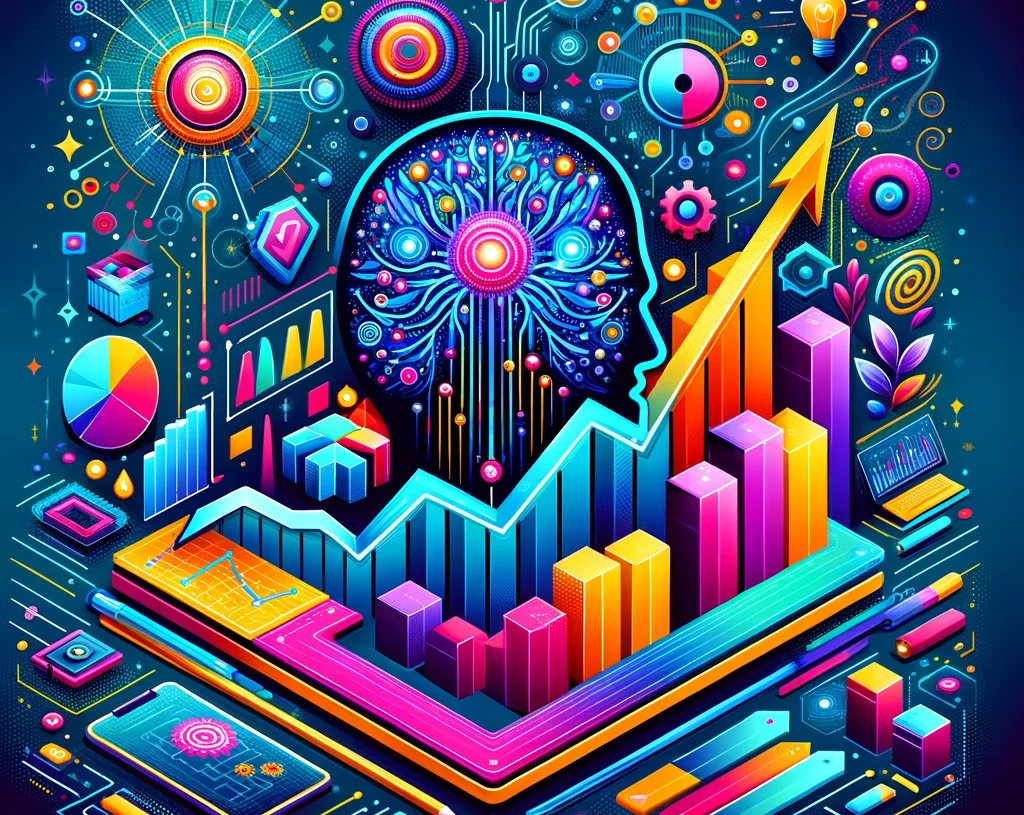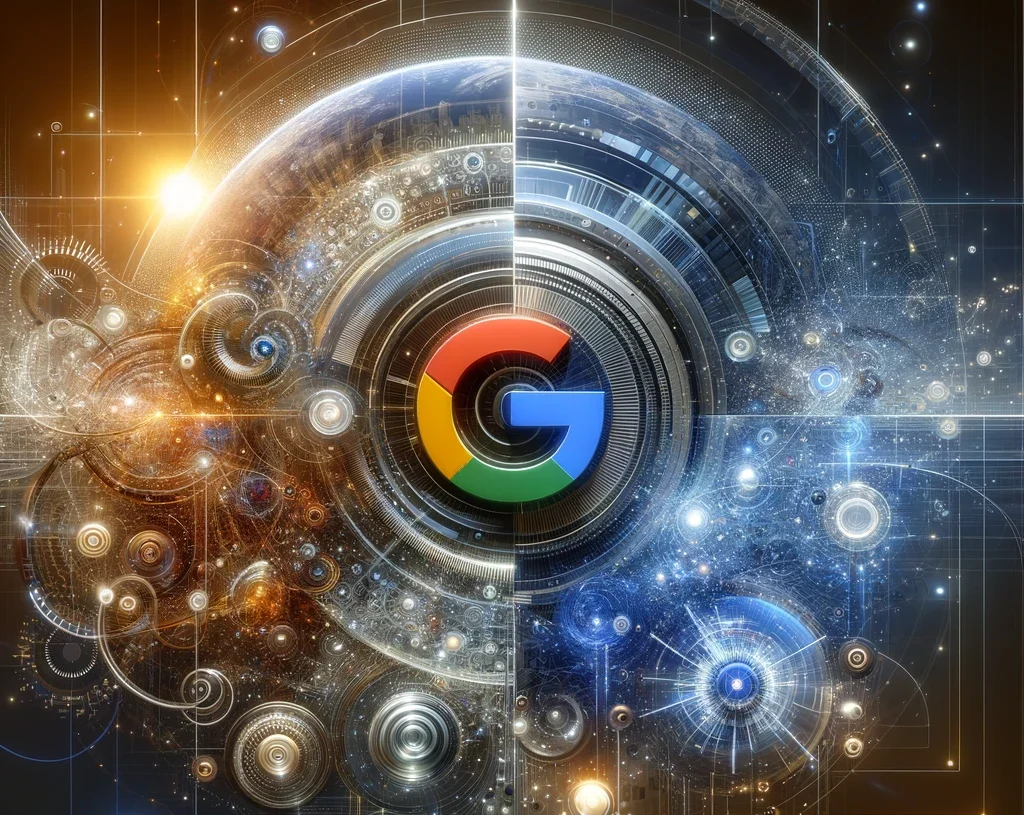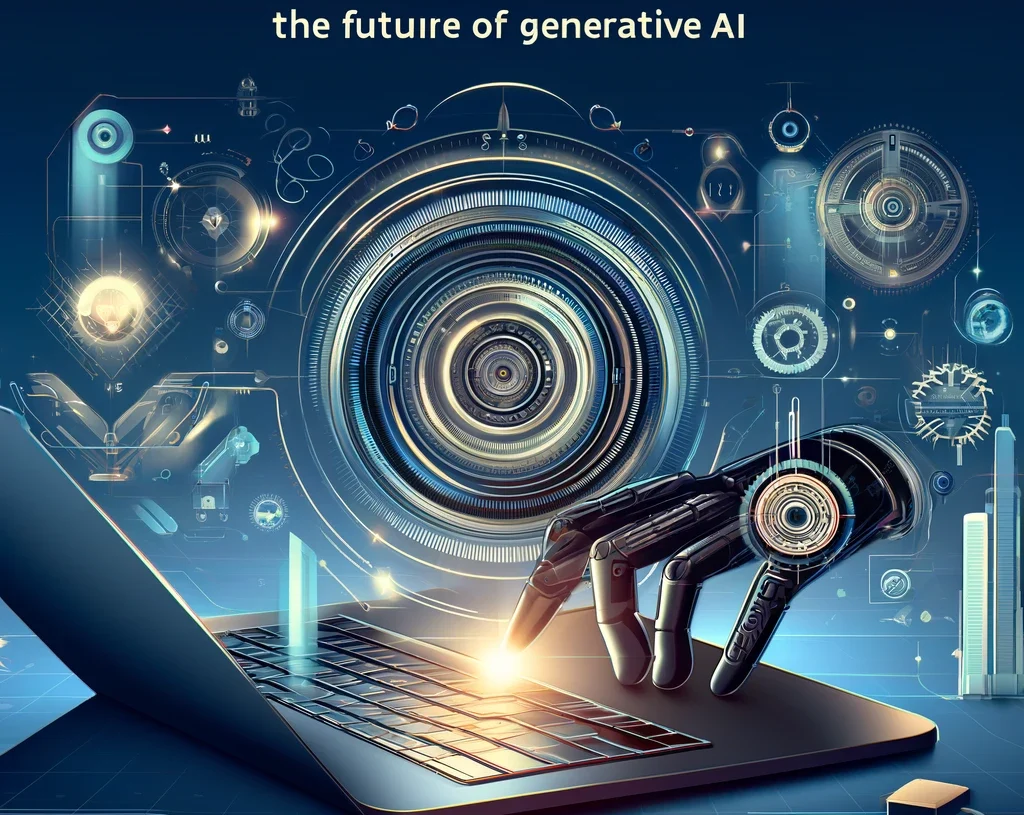Table of Contents
ToggleHow Generative AI Certifications Can Propel Your Career with Google’s Cutting-Edge AI Technology
Introduction
What is Generative AI?
Generative AI refers to a class of artificial intelligence models that can generate new content, ideas, and solutions. These models, primarily built on deep learning techniques like neural networks, excel in creating outputs resembling real-world data. Unlike traditional AI models that rely on predefined rules or datasets for predictions, generative AI can create realistic text, images, audio, and more. This has significant implications across industries, from creative fields like marketing and design to more technical domains like software development and healthcare.
The Increasing Influence Across Industries
In the creative sector, generative AI can craft tailored marketing messages, personalized content, or unique graphics in minutes, transforming workflows and enhancing productivity. In software development, it’s used to write code snippets, automate bug detection, and even predict the best architecture designs for specific applications. Medical research benefits through AI-generated molecular structures, accelerating drug discovery. Even in traditional manufacturing, AI helps optimize design and product testing processes, reducing costs and shortening development cycles.
The Value of Certifications
With this revolutionary influence comes a demand for specialized skills in handling and utilizing these powerful models. Generative AI certifications serve as a roadmap for professionals seeking to master the technology. These certifications provide structured learning pathways to understand neural networks, data generation techniques, and practical applications of models like GPT-4, DALL-E, and Stable Diffusion. Having a certification not only offers proof of competency but also provides practical expertise that opens doors to high-demand roles in AI research, software engineering, and data science.
How Google Shapes Generative AI’s Role
For many years, Google has played a leading role in AI research. Their research division, Google DeepMind, along with the Brain Team, has driven innovations in deep learning that underpin many generative models today. Their applications range from language models like BERT (Bidirectional Encoder Representations from Transformers) to generative image models like Imagen. Google’s AI tools, including Bard, have become industry benchmarks for efficiency and creativity, raising expectations for what these technologies can achieve.
How Certifications Align with Google’s AI Vision
Google’s prominence in AI is clear from their contributions to open-source AI frameworks like TensorFlow and Cloud AI services. By offering certifications like Google Professional Machine Learning Engineer, they enable individuals to master the tools necessary for integrating generative AI models. These certifications align directly with Google’s focus on practical, scalable AI solutions that meet business needs, ensuring that those who earn them are well-prepared to implement Google’s technologies in their work.
The increasing prevalence of Google’s tools in various sectors means that proficiency with their systems is highly valuable. By pursuing certifications, professionals gain the confidence and practical understanding required to deliver impactful AI solutions, staying ahead of the curve as generative AI continues to reshape how businesses and industries operate.


Understanding Generative AI Certifications
What Generative AI Certifications Typically Cover
Generative AI certifications are designed to provide a comprehensive understanding of the skills and concepts needed to work effectively with these advanced models. The curriculum generally includes:
1. Foundational Principles of AI and Machine Learning
- Understanding supervised and unsupervised learning.
- Basics of neural networks, deep learning, and their architectures.
- Overview of common algorithms used in machine learning and data generation.
2. Deep Learning for Generative Models
- Training and fine-tuning neural networks for text, image, or audio generation.
- Familiarity with architectures like GANs (Generative Adversarial Networks), VAEs (Variational Autoencoders), and Transformers.
- Techniques to handle large-scale datasets and optimize model training.
3. Application and Implementation
- Hands-on experience with leading frameworks like TensorFlow, PyTorch, or Google’s Cloud AI tools.
- Building, deploying, and scaling generative models in real-world environments.
- Practical projects involving creative text generation, image synthesis, or audio creation.
4. Ethics and Best Practices
- Ethical considerations around data privacy, copyright, and responsible AI use.
- Mitigating risks like bias, misinformation, and model misuse.
- Incorporating guidelines for transparency and fairness in generative AI solutions.
Why These Certifications are Increasingly Important
As generative AI rapidly advances, so does its integration into varied sectors. Certifications offer structured learning pathways to master this technology, ensuring professionals are equipped to:
- Address Talent Gaps: Organizations need experts who can design, implement, and manage generative models effectively.
- Stay Competitive: Companies look for certified individuals who can bring proven expertise and reduce the learning curve.
- Drive Innovation: Certified professionals are better prepared to push boundaries with creative AI applications and solve complex problems innovatively.
- Navigate Ethical Challenges: With certifications emphasizing responsible AI, experts are trained to implement safe, compliant solutions.
Careers and Industries Benefiting from Generative AI Skills
Generative AI skills unlock opportunities in multiple career paths and industries, including:
1. Software Development
- Building AI-driven applications for consumer markets or business solutions.
- Enhancing productivity tools using predictive and creative AI features.
2. Marketing and Creative Agencies
- Automating the creation of personalized marketing content and media assets.
- Generating engaging social media campaigns, visuals, and copywriting at scale.
3. Healthcare and Life Sciences
- Accelerating research through AI-generated molecular structures and drug discovery.
- Assisting in diagnostics with image analysis and personalized treatment plans.
4. Entertainment and Media
- Creating realistic virtual characters, animations, and immersive storytelling.
- Developing new forms of media that combine traditional creativity with AI-generated elements.
5. Business Intelligence and Data Science
- Utilizing generative models for predictive analytics, data augmentation, and business insights.
- Automating data processing and improving the accuracy of forecasts.
Generative AI certifications prepare professionals to harness the transformative potential of AI in these sectors and beyond. They provide the roadmap for future innovators to contribute meaningfully to the growth of AI-powered solutions across the global economy.


Google’s Generative AI: Transforming Technology
Overview of Google’s Advancements in Generative AI
Google has been a leader in artificial intelligence research and innovation, particularly in generative AI. The company’s advances stem from its research teams like DeepMind and the Google Brain Team. They have not only pioneered new machine learning models but also integrated these into practical products. Innovations such as Google’s Transformer architecture laid the groundwork for many state-of-the-art language models, allowing for unprecedented advancements in natural language understanding and text generation.
By investing heavily in research and scaling up computational resources, Google has developed a versatile suite of generative AI tools and frameworks that are transforming how we interact with technology.
Key Products and Tools Leveraging Google’s Generative AI
1. Google Search and Bard
- Google Search: Generative AI enhances search results by providing rich, summarized responses that aggregate information from multiple trusted sources. This approach, powered by language models, reduces the effort needed to find relevant information.
- Bard: An AI-powered chatbot designed to generate conversational answers, Bard integrates seamlessly with search capabilities, offering users interactive, dialogue-like answers to their queries. This tool helps users gain deeper insights or creative suggestions, often exceeding the basic responses available through conventional search.
2. DeepMind Projects
- AlphaFold: A transformative leap in protein structure prediction, AlphaFold uses AI to predict protein folding patterns with incredible accuracy. This breakthrough has revolutionized biological research, unlocking new possibilities for drug discovery.
- WaveNet: A generative model developed by DeepMind, WaveNet can produce natural-sounding, human-like voices for Google’s text-to-speech services, enhancing applications such as Google Assistant.
3. Google Cloud AI Tools
- Vertex AI: A unified platform where developers can build, train, and deploy generative models at scale. Vertex AI allows businesses to implement Google’s cutting-edge generative technologies efficiently.
- AutoML and AI Hub: These services simplify the process of building AI models, allowing even non-experts to experiment with generative models for text, images, and more. Pre-trained models can be fine-tuned or customized, providing more flexibility for specialized use cases.
4. Creative Tools
- Imagen: Google Research’s image generation model, Imagen, can generate high-quality images from textual descriptions. The model is capable of producing photo-realistic images or creative interpretations, opening new doors for artists and marketers.
- MusicLM: This tool synthesizes high-fidelity music based on text descriptions, allowing users to specify musical genres, instruments, or themes.
How Google’s Innovations Impact the Future of AI
Google’s innovations in generative AI have significantly influenced the development of modern AI applications, setting new standards for what technology can achieve. Their pioneering models and tools impact the future in the following ways:
1. Accelerating Research and Development
Generative models like AlphaFold and Bard accelerate research timelines across various fields. By leveraging these models, scientists can solve complex problems in months that previously took years.
2. Enhancing Creativity and Productivity
Google’s tools empower creatives to push the boundaries of their work. Artists, writers, and marketers can collaborate with AI, allowing them to generate high-quality assets in less time while experimenting with novel concepts.
3. Ethical and Responsible AI Implementation
Google emphasizes ethical AI research, prioritizing fairness and reducing bias. Their guidelines set best practices for model development, encouraging transparency and inclusivity.
4. Bringing AI to Everyone
Google Cloud’s AI tools democratize access to AI, enabling businesses to integrate state-of-the-art generative models regardless of expertise level. This accessibility ensures that more companies can reap the benefits of AI, fostering broader adoption and innovation.
In conclusion, Google’s generative AI initiatives offer transformative potential for the tech industry, setting new benchmarks for research, creativity, and accessibility. Their continued innovation promises to reshape how individuals and businesses interact with technology.


The Career-Boosting Power of Generative AI Certifications
Linking Certification Knowledge to Google’s Generative AI Projects
Generative AI certifications equip professionals with the knowledge and skills necessary to harness the power of advanced machine-learning models. Google’s work in generative AI offers a blueprint for applying these skills in real-world scenarios. By understanding the architectures, techniques, and ethical considerations behind Google’s innovative projects like Bard, AlphaFold, and WaveNet, individuals with certifications can align their expertise with Google’s groundbreaking work.
1. Mastering Transformer Architectures
Many certifications provide deep dives into the Transformer architecture, a model used extensively by Google in their AI projects like BERT (Bidirectional Encoder Representations from Transformers) and GPT-3. Professionals learn to implement, fine-tune, and optimize these models, which form the backbone of Google’s AI advancements in natural language understanding and generation.
2. Deep Learning for Creative Solutions
Certifications offer practical training in implementing neural network architectures like Generative Adversarial Networks (GANs) and Variational Autoencoders (VAEs), which are integral to Google’s tools such as Imagen. Certified experts understand how to build models that generate creative outputs, aligning their skill set with Google’s demand for high-quality image and text generation.
3. Ethical and Responsible AI Development
Google prioritizes the creation of ethical AI systems. Certification courses include sections on data privacy, reducing model bias, and ensuring transparency. With this foundation, certified professionals are better prepared to contribute to Google’s responsible AI initiatives, such as lowering misinformation in generated search results.
Skills and Concepts in Certifications Aligned with Google’s Implementations
The skills learned through generative AI certifications can be directly mapped to the core competencies required by Google’s generative AI implementations. These include:
1. Data Management and Preparation
- Cleaning and preparing large-scale datasets for model training.
- Implementing data augmentation techniques to expand training data.
2. Model Design and Optimization
- Understanding different neural network architectures like RNNs, CNNs, and Transformer-based models.
- Applying transfer learning to pre-trained models, reducing training time while enhancing performance.
3. Deployment and Scalability
- Developing workflows for deploying generative models into cloud environments, especially Google Cloud’s Vertex AI.
- Ensuring scalable and efficient model serving that can handle real-world production traffic.
4. Creative Problem-Solving
- Using GANs and VAEs for creative projects like generating images, music, or natural language text.
- Innovating solutions for unique challenges in healthcare, marketing, or software development.
Preparing for AI-Driven Roles in Leading Companies
Acquiring a generative AI certification provides professionals with practical and theoretical knowledge to secure roles in leading tech companies like Google. Here’s how these certifications position them favourably:
1. Industry-Recognized Validation
Certifications signal to employers that candidates have a verified understanding of cutting-edge AI concepts, increasing their credibility for advanced roles.
2. Hands-on experience with Real-World Applications
Many certification programs include projects that replicate real-world challenges, such as developing chatbots or creating image synthesis models. This hands-on experience makes candidates better prepared to hit the ground running.
3. Adaptability Across Industries
With the versatility of generative AI, professionals can transition seamlessly between roles in creative agencies, healthcare research, and technology firms, adapting their skills to meet industry-specific needs.
4. Strategic Vision and Implementation
Certified individuals learn how to think strategically about AI integration, aligning technical skills with business goals. This prepares them for leadership roles where they can shape the AI strategy of an organization.
In summary, generative AI certifications provide professionals with the necessary toolkit to understand Google’s advanced AI projects and translate that knowledge into high-impact roles within leading companies. They offer a pathway to mastering one of the fastest-growing and transformative technologies today.


Preparing for the Future: Actionable Steps
How to Pursue Generative AI Certifications
Earning a generative AI certification is a significant step toward building a rewarding career in this field. Here’s a useful guide to help you begin:
1. Identify Relevant Certification Programs
- Specialization: Choose programs based on your career goals, whether it’s creative media, software development, or data science.
- Reputation and Content: Look for reputable courses that cover essential topics like deep learning, neural network architectures, and practical projects.
- Hands-On Training: Ensure the program provides opportunities to build real-world projects and gain valuable experience.
2. Strengthen Foundational Knowledge
- Mathematics and Programming: Brush up on linear algebra, calculus, and statistics. Proficiency in Python and machine learning libraries like TensorFlow or PyTorch is essential.
- AI Basics: Learn the basics of neural networks and machine learning principles through online resources like Coursera, edX, or Kaggle competitions.
3. Engage in Practical Projects
- Work on open-source projects or create your own AI models. Experimenting with text generation or GANs will give you practical insights and confidence.
- Participate in hackathons or AI challenges that allow you to solve real-world problems while networking with peers.
4. Create a Portfolio
- Document your projects with detailed explanations of your model choices and the challenges faced.
- A strong portfolio showcasing your skills can significantly increase your chances of landing a high-impact job.
Google Resources and Other Platforms
Google offers a variety of resources and platforms for learning generative AI:
1. Google Cloud Training
- Explore Google’s Professional Machine Learning Engineer certification, which covers machine learning and AI concepts in a cloud context.
- Take courses that provide practical exercises on deploying models with Google Cloud tools like Vertex AI.
2. TensorFlow and Deep Learning Courses
- Google’s Deep Learning Specialization on Coursera includes a series of courses introducing deep learning, GANs, and sequence models.
- The TensorFlow developer certification ensures proficiency in using Google’s open-source machine learning library for practical solutions.
3. Google AI Hub
- This platform offers pre-trained models and best practices, helping you learn by experimenting with pre-built generative models like BERT or GANs.
4. YouTube and Online Communities
- Google’s YouTube channels, like Google AI or TensorFlow, share tutorials, webinars, and expert insights.
- Engage in forums such as TensorFlow, Reddit’s Machine Learning subreddit, or Stack Overflow to share ideas, solve problems, and stay updated.
Exploring Emerging AI Careers
Generative AI opens the doors to many exciting and emerging roles. Here are some high-potential career paths:
1. AI Research Scientist
- Focus on developing new generative models or improving existing architectures.
- Research positions typically require a Ph.D. but are well-rewarded with high-impact publications and innovative projects.
2. Machine Learning Engineer
- Design, train, and deploy generative models for applications in marketing, software, and creative industries.
- Collaborate with software developers to ensure seamless integration of AI systems into products.
3. Data Scientist
- Leverage generative models to enrich data for predictive analytics, business insights, or creative tasks.
- Work with interdisciplinary teams to analyze business problems and provide AI-driven solutions.
4. Product Manager in AI
- Lead teams that build AI products, defining their vision and strategy.
- Requires a blend of technical expertise and business acumen to prioritize features and ensure market relevance.
In conclusion, the journey toward a successful generative AI career starts with identifying relevant certifications and building practical experience. By leveraging Google’s resources and actively networking, you can tailor your skills for the emerging roles in this rapidly evolving field.


Conclusion
Recap of Key Points
Generative AI is revolutionizing industries by enabling machines to produce creative and valuable outputs. Google’s advancements in this field have set a new standard for innovation, with tools like Bard, AlphaFold, and WaveNet demonstrating the potential of generative models. Generative AI certifications provide professionals with the foundational knowledge and practical skills necessary to harness this technology. By learning neural network architectures like Transformers, GANs, and VAEs, individuals can directly align their expertise with Google’s state-of-the-art tools and projects.
These certifications validate critical skills like model design, ethical AI practices, and scalability, making them increasingly relevant as demand for generative AI professionals rises. Learners can strengthen their credentials through hands-on projects, specialized courses, and platforms like Google Cloud Training or TensorFlow.
Importance of Staying Ahead with Certifications
In the rapidly evolving world of AI, certifications offer a structured pathway to keeping pace with industry trends. By equipping professionals with specialized skills, they enable individuals to contribute meaningfully to projects that are reshaping entire industries. From AI research scientists to machine learning engineers, a wide range of emerging careers directly benefit from generative AI certification programs. Staying ahead of the curve through ongoing learning ensures that you’re ready to tackle high-impact roles and lead innovation in your field.
Call to Action
To prepare yourself for the next phase of the AI revolution, explore certification programs tailored to your career goals. Consider Google’s Professional Machine Learning Engineer certification or specialized courses on deep learning and generative models. Experiment with Google’s AI tools, like Cloud Vertex AI, and follow their open-source projects to understand how state-of-the-art models can transform your workflow.
Take the initiative today by enrolling in a certification course or starting a personal project to build your portfolio. With generative AI continuing to grow in importance, these steps will help you stand out and unlock a rewarding career in this cutting-edge field.
Frequently Asked Questions About Generative AI Certifications and Google’s Innovative Tools.
- What is generative AI, and how does it differ from traditional AI?
Generative AI refers to models that can create new, unique outputs, like images or text. Traditional AI typically classifies or analyzes data instead of generating new content. - How does Google use generative AI in its products?
Google incorporates generative AI in tools like Bard, which answers user queries conversationally, and AlphaFold, which predicts protein structures. - Why should I consider getting a certification in generative AI?
Certifications validate your skills in working with advanced AI models, making you more attractive to employers and helping you stay competitive in the rapidly changing AI industry. - What foundational skills do I need before starting a generative AI certification?
Basic knowledge of programming (preferably Python), statistics, and machine learning concepts like supervised and unsupervised learning is essential. - How long does it take to complete a generative AI certification?
Depending on the program, it can take a few weeks to several months. Self-paced courses allow flexibility for different schedules. - What kind of careers can I pursue with a generative AI certification?
You can explore roles like machine learning engineer, AI research scientist, data scientist, or product manager specializing in AI. - Is Google’s Professional Machine Learning Engineer certification helpful for generative AI?
Yes, it covers relevant skills like data preparation, model training, and deployment on Google Cloud, which are critical for working with generative AI. - What are the key challenges when developing generative AI models?
Ethical concerns, model bias, data privacy, and ensuring quality outputs are some of the main challenges. - How is Google advancing ethical AI practices in generative models?
Google prioritizes ethical guidelines by mitigating bias, ensuring fairness, and providing transparency in its models, like Bard and AlphaFold. - Can generative AI replace human creativity entirely?
While generative AI aids creativity by automating tasks and offering new perspectives, it still requires human input for ideation and refining outputs. - Is it possible to get practical experience with generative AI without a formal job role?
Yes, by working on personal projects, joining AI challenges or hackathons, and contributing to open-source projects. - What online platforms offer quality generative AI certification programs?
Coursera, edX, Udacity, and Google Cloud offer specialized courses tailored to different experience levels. - How can I integrate Google’s AI tools into my certification learning?
Experiment with pre-trained models available in Google’s AI Hub and utilize Google Cloud’s Vertex AI to deploy your models. - What are GANs, and why are they important for generative AI?
GANs (Generative Adversarial Networks) use two neural networks to create high-quality images, making them vital for creative applications in art, gaming, and media. - What is the best way to build a portfolio for generative AI jobs?
Showcase projects where you’ve implemented models like GANs, VAEs, or Transformers. Detail your process, challenges, and results. - How does generative AI impact content marketing and advertising?
It can automatically generate tailored content, visuals, or scripts, helping marketers create more effective campaigns quickly. - What role does Google’s TensorFlow play in learning generative AI?
TensorFlow provides a comprehensive framework for developing, training, and deploying neural networks, making it an essential tool for learning generative AI. - How do certifications help in navigating the ethical challenges of generative AI?
Certifications often include sections on ethical practices, data privacy, and responsible AI usage, helping professionals build safe and compliant models. - Can non-technical professionals learn generative AI effectively?
Yes, many certifications and beginner-friendly resources simplify technical concepts, making them accessible even to those without a strong technical background. - What new trends are emerging in the field of generative AI?
Growing interest in multimodal models, real-time data generation, and improved ethical frameworks is shaping the future of generative AI.


































Comments 2